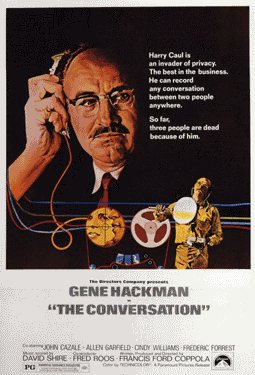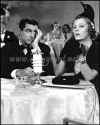Thursday 6/15They’re calling for showers today, so we skip the beach, drive to Falmouth, and catch the ferry to Martha’s Vineyard. As it turns out, the rain holds off until late afternoon and there are even some breaks of sun, but it stays muggy all day. We make the trip over on The Islander, a pretty large boat, which turns out to have been built in my birthplace, Baltimore, MD, in 1950—so, fourteen years before I was born. The ferry ride is exciting for Nicholas, and there is apparently some sort of car show about to happen on the Vineyard because the hold of the boat is full of all kinds of classic cars in cherry condition, including a silver Rolls Royce. Below decks the engine throbs deafeningly, the hold vibrates, and the smell of gas fumes is strong as we snap a few pics before heading back up into the fresh air.
*
We have been meaning to visit the island for a long time, but as it turns out, we’re rather disappointed. Our friend Andrea has vacationed here for years, renting a house with a bunch of friends, and loves it, and I’m sure that if one knows the island well it yields up its secrets and pleasures. But we are just over for a few hours in Vineyard Haven, the town where our ferry docked (you can also get one to Oak Bluffs, which sounds like it might be more interesting) and the collection of chichi shops just isn’t particularly our scene.
The icecream at Mad Martha’s is good, but the real saving grace, for us, is an excellent bookstore called Bunch of Grapes (yeah, kinda silly). The children’s section is really good, and since Nicholas hasn’t gotten a nap the activity book we pick up turns out to be pretty crucial to our sanity for the next couple of hours. I don’t buy anything (I’m a pretty hard sell when it comes to new books) but copy down some titles as I browse the film and science sections. Film:
The Other Hollywood (an, ahem, “oral history” of the porn industry);
Death 24 X a Second (new theory book from Laura Mulvey, which I will probably find overblown—but I’m intrigued because I teach a film course called The Art of Time, which keeps coming back to the problem of death whether I want it to or not);
Screenwriter’s Masterclass (c’mon, you know you want to write one too); and
Lynch on Lynch (what it sounds like, and just as weird as you would think). Science:
A Short History of Nearly Everything (I may be the only one who hasn’t read it yet);
A People’s History of Science; and
Pulse: the Coming Age of Systems and Machines Inspired by Living Things.
*
The long anticipated rain finally comes as we’re catching the five o’clock ferry back, and the ride home is dreary. It’s too wet up on the open-air top deck, so everyone is packed below, where it gets close and muggy real fast. Some local spice is added by a rambunctious crew of workmen making the beery commute back to the mainland after a day’s toil on the island.
Then, surprisingly, though really by now it’s a pattern, the sun breaks out for a last fling as we disembark at Woods Hole (we had parked in Falmouth and taken a shuttle there to catch the boat). We’re only there briefly, and maybe it’s just the sun and getting out into the air, but we find ourselves liking the vibe of Woods Hole better than we liked the Vineyard (or at least Vineyard Haven). We go to a place called Shuckers, sit right by the water, and get an excellent “lobster boil,” which is lobster plus mussels and steamers, for a great price (the Thursday special). There’s nothing quite like slurping seafood close enough to the brine so that you might fall in yourself if you tipple a bit too much wine.
*
Last night I finally punted the John Varley novel which has tormented me all trip, then started salvaging my vacation reading experience by dipping into Thoreau and Chatwin. Thoreau comes, as so often, like a breath of fresh air, though his chastening, relentless, anti-materialism makes me squirm more than it did when I was younger and owned fewer things. And Chatwin is even worse—he doesn’t want to own anything, it seems, and barely manages to establish a small apartment as “A Place to Hang Your Hat,” as the title of one essay has it. Indeed, Chatwin’s “anatomy of restlessness,” makes me so, well, restless, that I go back to Thoreau, as the gentler companion.
Spilling all these words about Cape Cod, about which I know really very little, I take some consolation in the fact that Thoreau had only spent about three weeks on the Cape before he wrote his book. There’s an amusing image, from “The Plains of Nauset” section, of Thoreau and his companion walking along the beach in the pouring rain, reading from their Cape “histories” under cover of an umbrella.
Returning to this book at the advanced age of 42, it strikes me that Thoreau is something of a young smartass here, bemused and ironic about what passes for received wisdom—and yet he’s also a good listener, especially in the classic “Wellfleet Oysterman” chapter, which brims with local lore relayed by his nonagenarian host. Thoreau obviously gets a real kick out of the old geezer (“the merriest old man that we had ever seen”), who can remember back to when he was a lad during the Revolutionary War: “I was a young fellow of sixteen, with my ears wide open; and a fellow of that age, you know, is pretty wide awake, and likes to know everything that’s going on.”
Anyway, Thoreau certainly gets off some good lines, and there is nary a guidebook around these days that can get by without referring to the Cape as “the bare and bended arm of Massachusetts,” where “ a man may stand…and put all of America behind him.” But if you’re going to put America behind you these days, you’d better look over your shoulder now and then.
Interesting that the Cape of Thoreau’s days seems to have been a barren, deforested place (the drearier it was, the better he liked it), a kind of ecological disaster area, even though it did manage to produce some significant crops (particularly corn). I’m sure the place still has its problems, but it seems pretty well forested now, at least to the casual observer, and its various nature preserves and wildlife refuges seem to have reclaimed significant ground, even as development has obviously continued, rapidly. At some point, I guess, people do realize, are
forced to realize, that there has to be something left for a place to continue to be a real
place—in other words, somewhere you might like to go.
In one passage, Thoreau writes “Generally, the old-fashioned and unpainted houses on the Cape looked more comfortable, as well as picturesque, than the modern and more pretending ones, which were less in harmony with the scenery, and less firmly planted.” And, of course, we still usually feel the same way, only now what was new for Thoreau (his last visit was in 1855) would qualify as pretty old and venerable for us. What is old, if it has lasted, always looks more settled, comfortable, and natural than what is new (and I like my Branford Colonial, from 1820, for just that reason). But we are, after all, continually having to make new things, and if we are a little bit smart, and also lucky, maybe some of the new things
will settle, “in their time.” (And one notices now that a lot of the new places are, in fact, in that unpainted, and now famous, “Cape” style that Thoreau liked so much.)
T. is convinced that autumn is the best time to see the Cape. Maybe we’ll try
that one of these years.



